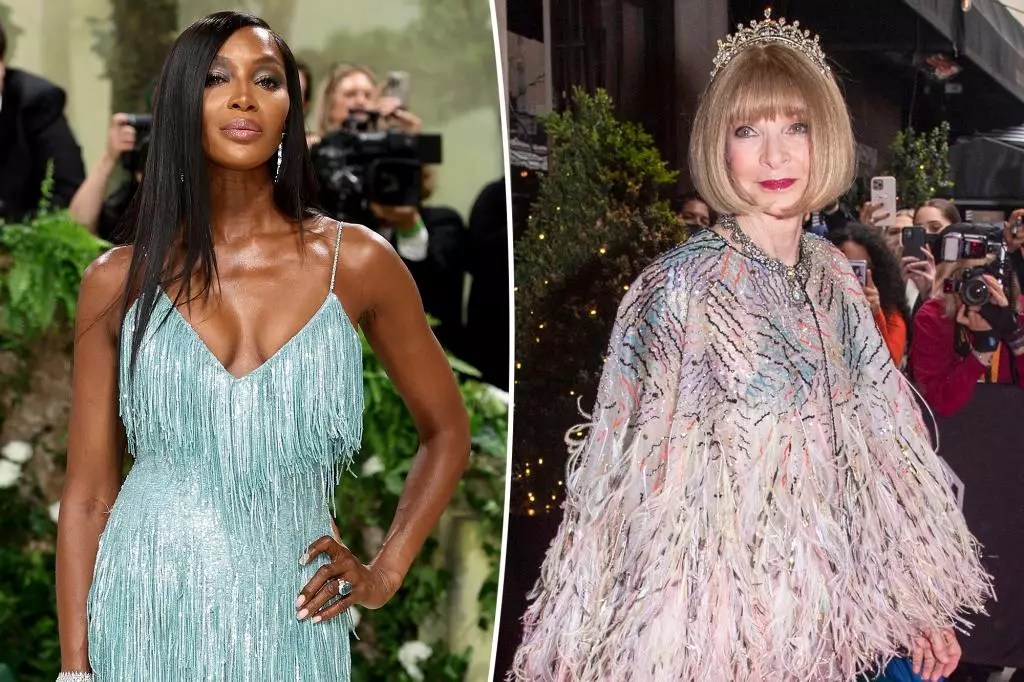Supermodel Naomi Campbell’s announcement to skip the 2025 Met Gala has sent ripples through the fashion community. Her decision, linked to speculation about her relationship with Anna Wintour, the event’s organizer, signals more than just a personal absence; it reflects a complex web of dynamics influencing celebrity culture and the fashion industry. The Met Gala, an event synonymous with high fashion and extravagant displays, has often served as a barometer for the evolving conversations surrounding identity and representation in fashion. Campbell’s withdrawal raises questions about the implications of personal relationships in such a public arena.
In her Instagram post, Campbell congratulated Wintour and the event’s participants while emphasizing the significance of the ‘Superfine: Tailoring Black Style’ theme, which seeks to highlight the deep-rooted influence of Black culture in fashion. It’s a concept that resonates strongly in today’s world as discussions of representation continue to gain traction. Yet, her absence feels like a statement in itself, suggesting that perhaps the personal and professional bridges are fraying in ways that the industry finds challenging to ignore.
Echoes of a Rift
Hints of tension have emerged from Campbell’s past interactions with Wintour, particularly a striking incident at the 17th Fashion Row Fashion Show. Campbell was publicly critiqued for her tardiness when Wintour asserted, “I am a very punctual person.” Such comments indicate a possible fracture between two icons who, despite their apparent differences, have shared mutual respect over the years. Campbell’s retort during her acceptance speech further complicated the narrative; her pointed remarks implied a discomfort that lingers beneath the glamorous facade of fashion events.
It raises the question: how much do personal grievances influence public appearances? Campbell’s decision to forgo the Gala could not only be a reflection of her own feelings towards Wintour but also an intentional choice to draw attention to the complexities of representation in elite spaces. The Met Gala, after all, stands as a festival celebrating creativity—yet it is also a platform frequently criticized for exclusionary practices.
A Profound Loss and Legacy
Part of Campbell’s post included tributes to the late stylist André Leon Talley, whose influence in shaping modern fashion narratives is indelible. His legacy looms large over the industry, a reminder of the transformative potential of fashion as a means of expression. By acknowledging Talley, Campbell seems to assert that her presence—not merely as a model but as a voice—will continue to resonate even in her absence at the Met Gala. She’s hinting at a deeper narrative surrounding identity, artistry, and power that transcends physical presence.
The connection between Campbell and Talley underscores a generation of creatives who grappled with their visibility in spaces often dominated by a narrow definition of style and beauty. In Campbell’s spirit-filled tribute, we can discern a reminder of the struggle for representation. It’s a poignant reflection that underscores why the decision to skip such an event is as impactful as attending it.
The Cultural Conversation
The Met Gala operates as a cultural touchpoint, and Campbell’s decision to withdraw invites broader dialogues about the intersections of race, identity, and camaraderie within fashion. Her absence is felt by many in the industry—friends, fellow models, and even fans who have marveled at her extraordinary contributions over the decades. The chatter surrounding her decision isn’t just about the gala; it speaks to the relationships women in power often navigate amid competition, camaraderie, and the quest for representation.
The timing of her announcement and the sentiment behind it are critical. Campbell reflects a community of individuals who seek acknowledgment and celebration of diverse contributions, all while articulating the messy realities of personal relationships within high-fashion circles. In an era when empowerment dialogues dominate conversations, one can’t help but feel that Campbell’s skipping the Met Gala may also be a call to action for industry insiders to reconsider who truly gets to shine in these iconic spaces.
Ultimately, Campbell’s absence from the Met Gala is less about the event itself and more about the narratives surrounding it. A missed appearance becomes a thoroughly analyzed statement about personal agency, historical legacy, and the urgent need for genuine inclusivity in fashion’s most celebrated night.


Leave a Reply